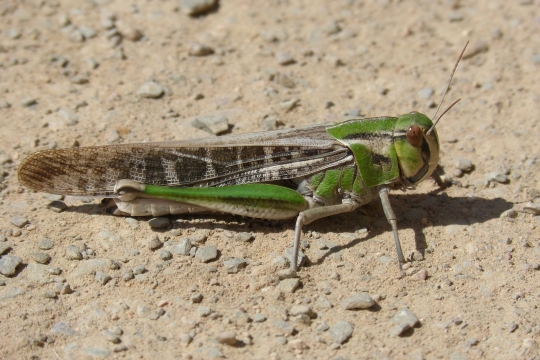Insects are the most diverse life forms on earth. They can be a solution to some of the world’s most urgent problems, such as climate change, malnutrition, poverty, and waste management. Meet Menale Kassie, to learn about this.
Tell me about your work!
I work at the International Centre of Insect Physiology and Ecology (icipe), as the Head of the Social Sciences and Impact Assessment Unit. We research insects, harmful as well as beneficial insects. We learn about the stakeholders’ needs and how to use our technologies in the best ways. We strive to produce policy-relevant research that benefits men and women equally.
What made you interested in this field?
I grew up in Ethiopia, where agriculture is a primary source for food security and development. That’s why I got interested in the combination of development and agricultural economics. I never dreamed I would become a doctor, but I moved from one ladder to the next. I realized that to contribute, you need to learn more, so I continued studying and took a Ph.D. in Norway. My network has kept growing and the exchange of knowledge is crucial for me.
Can you give an example of a recent project you’ve worked in?
In 2019, I led the development of a large development program for Ethiopia (USD 56 million), where 60% of the beneficiaries are women. The purpose was to create jobs for 100,000 youth by providing appropriate business skills and start-up technology for honey and silk, silk production and complimentary business for them. Their crops, such as fruits and vegetables, benefitted from the pollination of the bees. We also assist with capacity building, linking to financial institutions and markets to expand their businesses.
You are one of the keynote-speakers at EfD’s Annual Meeting. What will you talk about?
I will talk about how we can use insects for food and animal feed, to mitigate climate change, create employment, reduce poverty and malnutrition, and support sustainable development.
Why are insects so interesting for development and the environment?
The global demand for protein is increasing considerably due to the growing population, per capita income and urbanization. However, meeting this demand using the current food production strategy is at risk because of dwindling natural resources and climate change caused by crop and livestock production. To address this situation, the world needs alternative protein and feed sources other than conventional livestock and feed sources. Using insects for food and feed provide a promising alternative solution to these challenges. Insect production requires fewer resources (e.g. land, water, energy, and feed) than livestock and crop production for animal feed while providing more protein and contributing less to climate change due to generating lower GHG emissions and convert low-value organic by-products into high-value proteins and feed. Also, bio-fertilizers, a by-product of insect farming for feed and food, can enhance developing countries’ food security and livelihood while improving environmental sustainability.
How are you going to make people eat insects?
It’s not easy to introduce new habits and change people’s attitudes, but with high demand for food production, climate change and other environmental challenges plus high food and feed costs, we are ready for take-off. Countries like Kenya, Uganda and Rwanda developed standards and policies to introduce insects in the agri-food and feed systems.
And when it comes to eating, I suppose it’s the same as for food in general: It’s all about the presentation!
By: Petra Hansson
